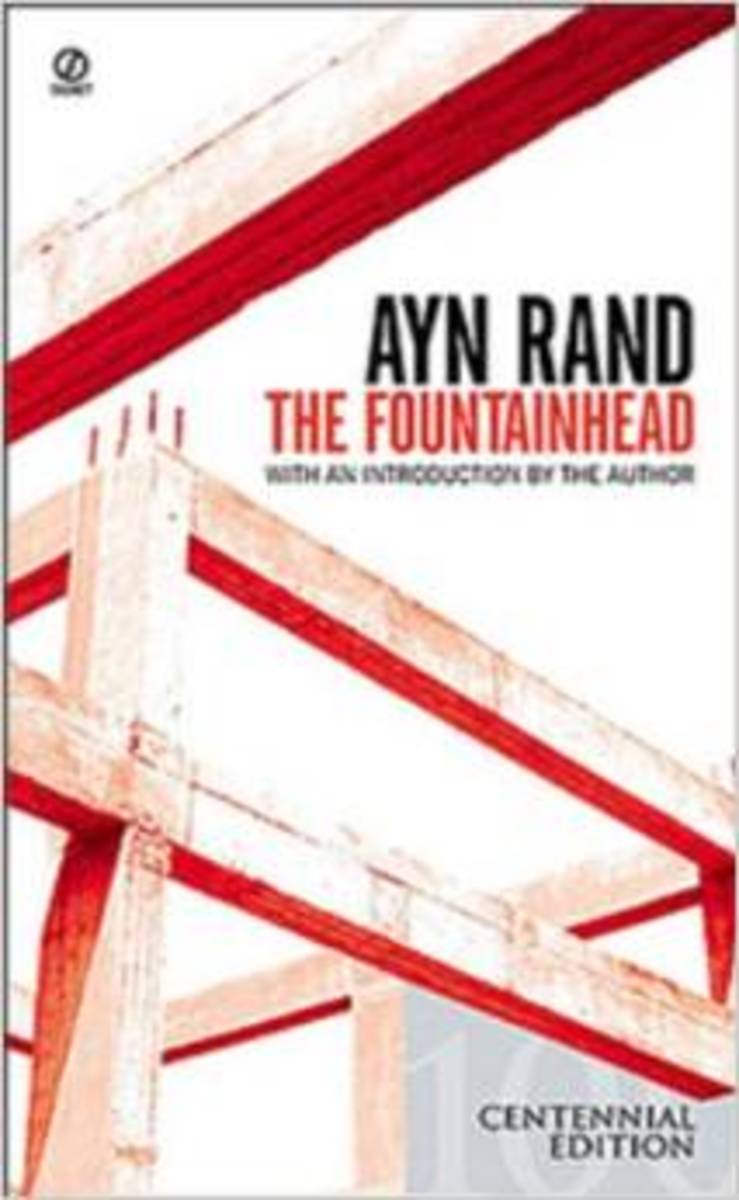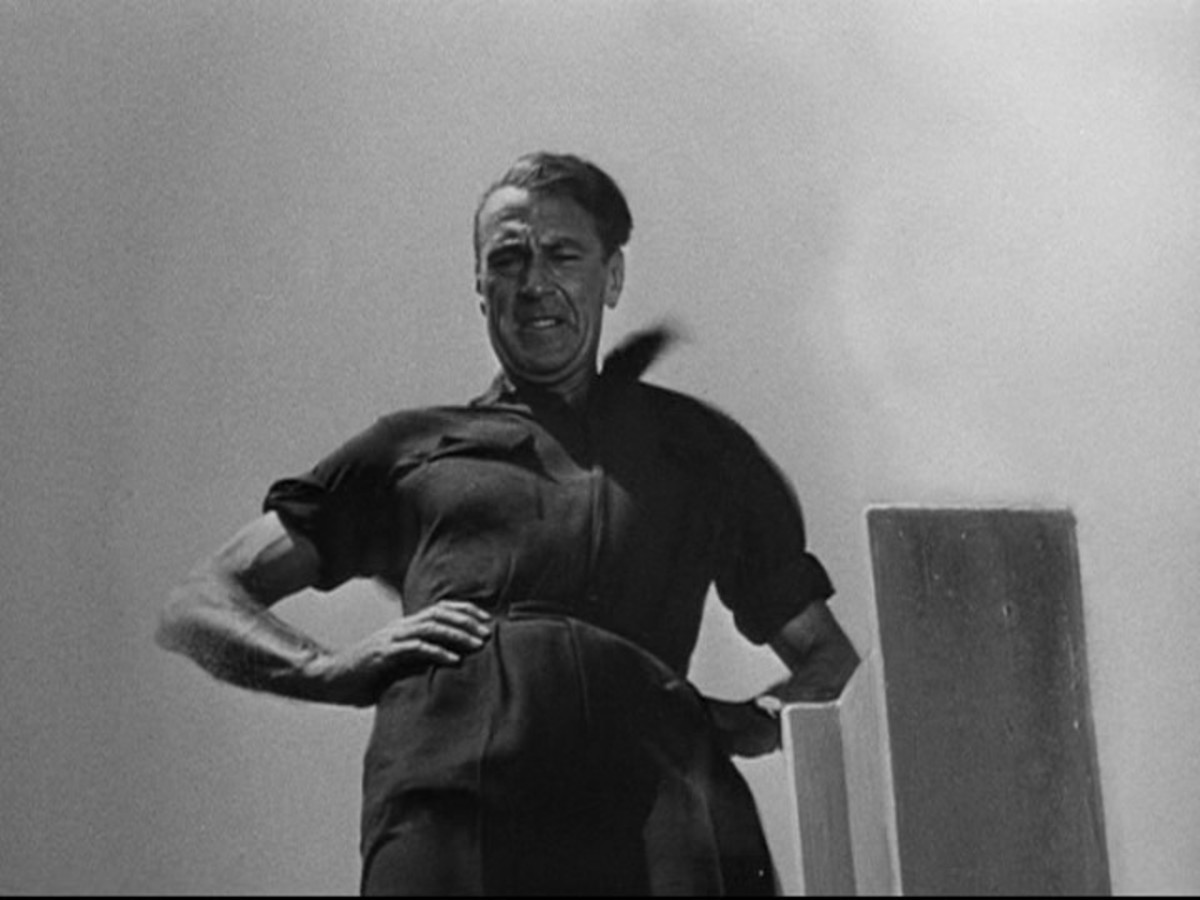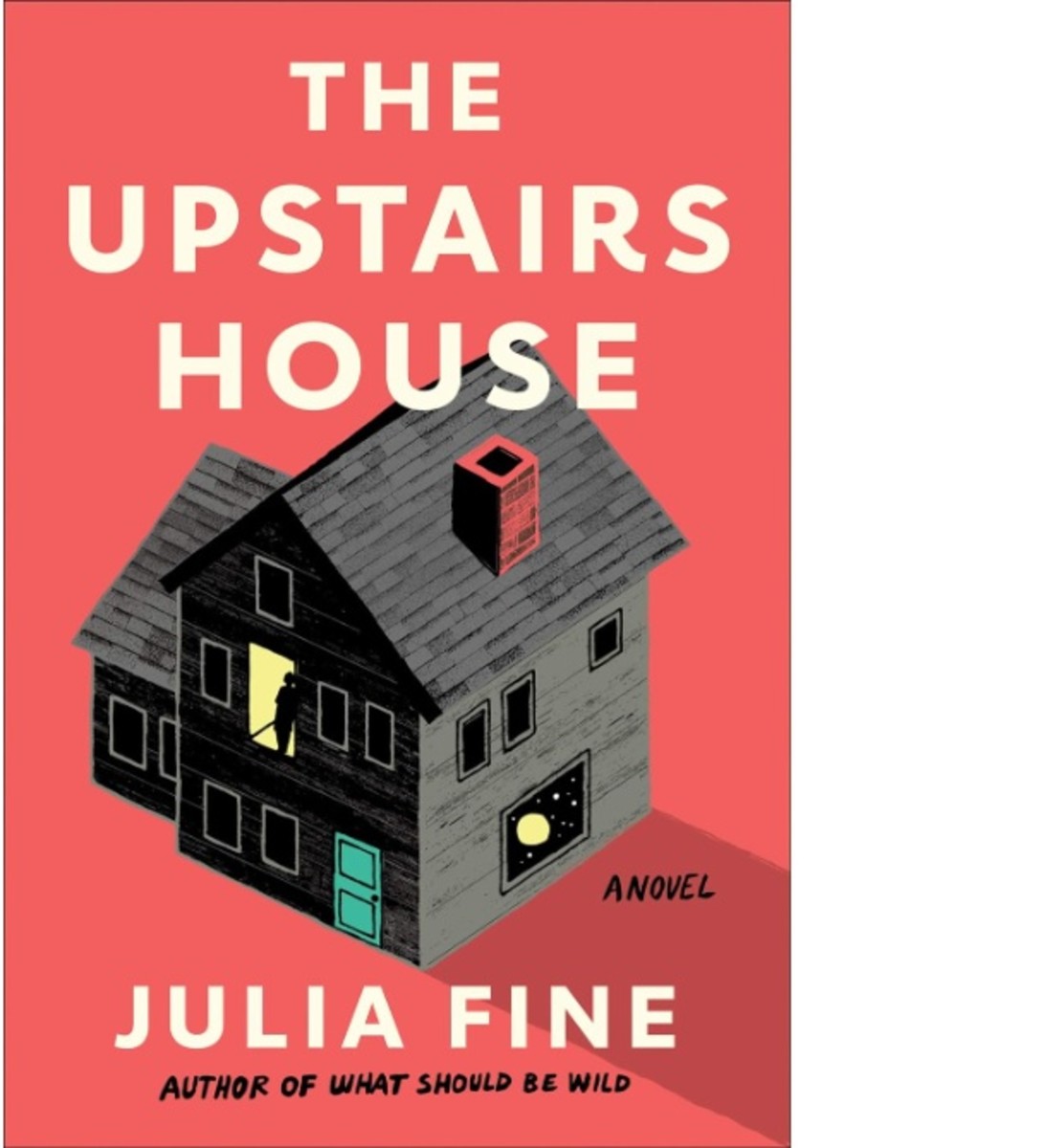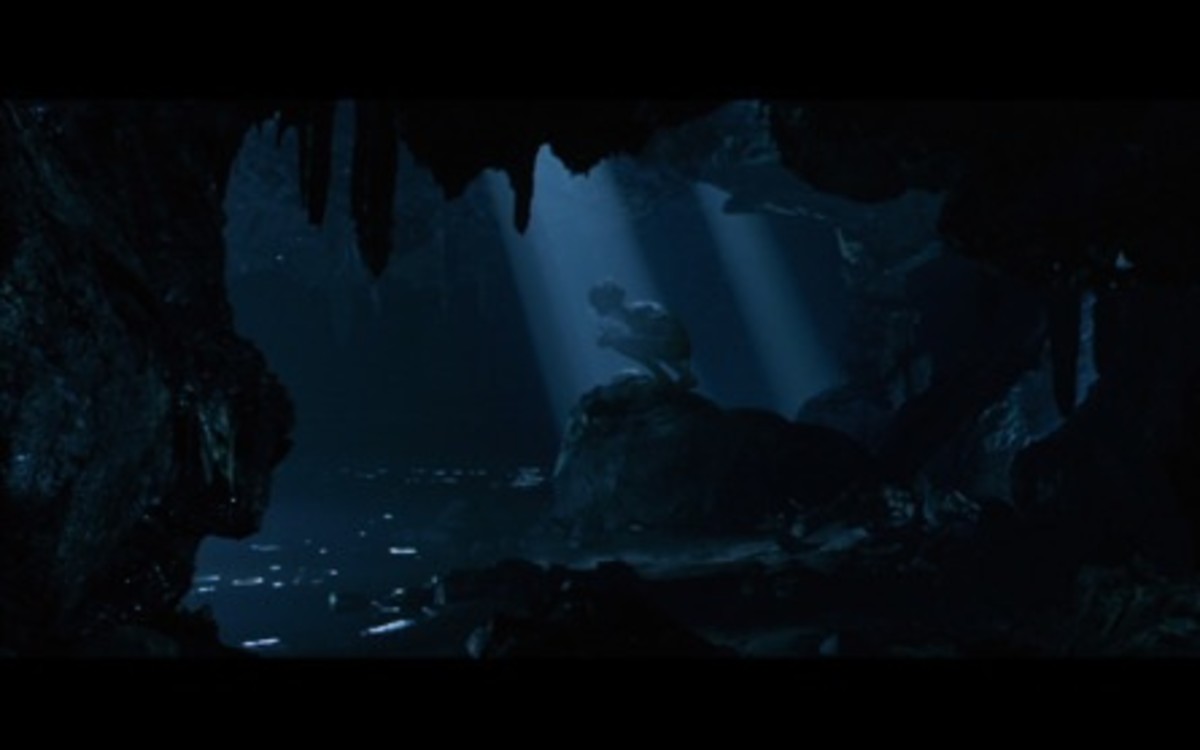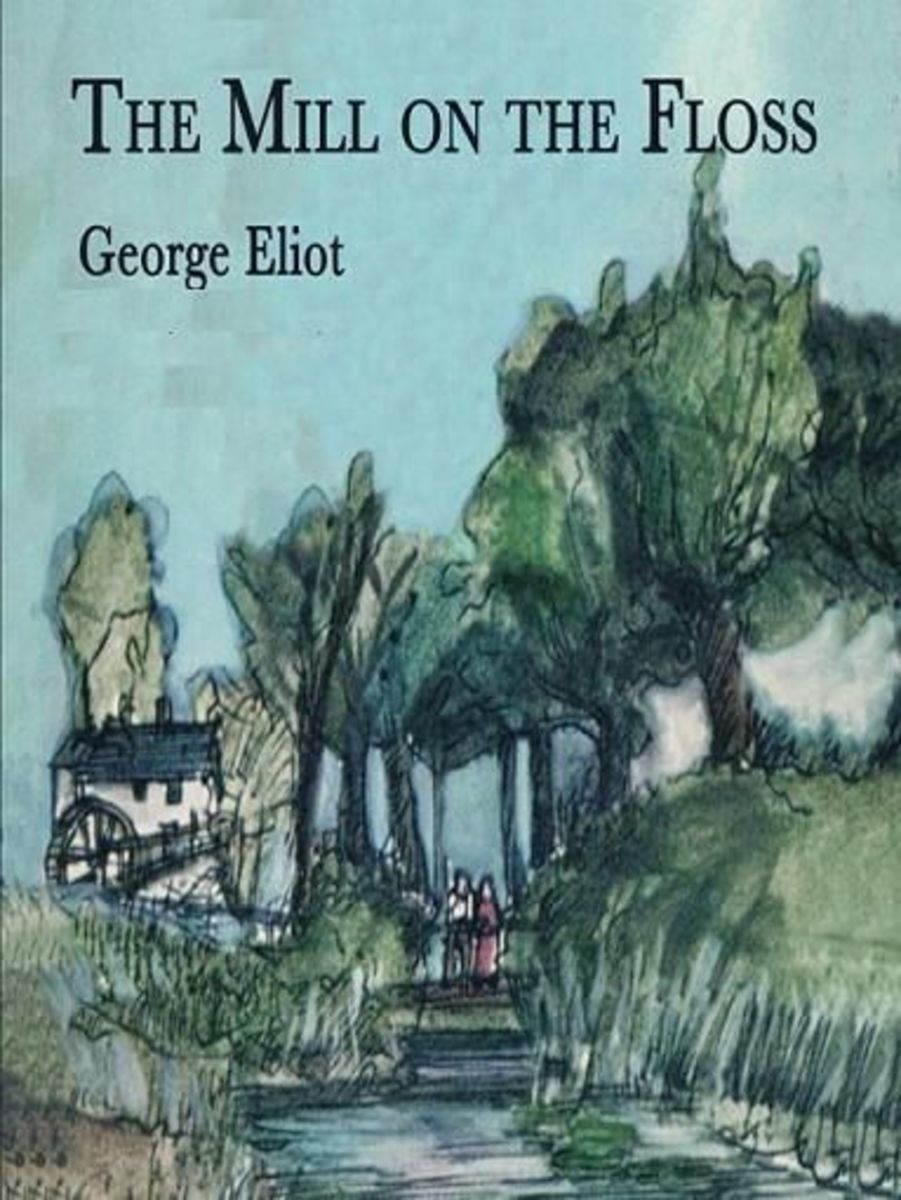My Top 10 Books in the English Language
This is a list of books that I return to over and over again. There are many good books that I have read, but these are the ones that I keep around, quote from,and reread in times of trial and tribulation. These books are like comfort food for the soul. Oh, and they're also in English. And they're fiction, and in prose.
There are some other books that would be on this list if it weren't for those qualifications. The Old Testament is a book I re-read all the time, but it's in Hebrew and it wouldn't qualify. Kipling is one of my favorite authors. I have read some of his novels, and they were good, but not one of them made the list. They're all English language books, too, but I didn't feel the need to read them more than once. It's my book of Kipling's Collected Poems that I return to, over and over again, not his novels or his short stories.
The following ten prose books made it into the list on their own merits.Some are by my favorite authors, but not every book by a favorite author made it onto the list. Some of them are written by people who are not on my list of favorite authors. They just happen to be my favorite books. In English.
Except from Wuthering Heights
I took a seat at the end of the hearthstone opposite that towards which my landlord advanced, and filled up an interval of silence by attempting to caress the canine mother, who had left her nursery, and was sneaking wolfishly to the back of my legs, her lip curled up, and her white teeth watering for a snatch. My caress provoked a long, guttural gnarl.
'You'd better let the dog alone,' growled Mr. Heathcliff in unison, checking fiercer demonstrations with a punch of his foot. 'She's not accustomed to be spoiled - not kept for a pet.' Then, striding to a side door, he shouted again, 'Joseph!'
Joseph mumbled indistinctly in the depths of the cellar, but gave no intimation of ascending; so his master dived down to him, leaving me VIS-A-VIS the ruffianly bitch and a pair of grim shaggy sheep-dogs, who shared with her a jealous guardianship over all my movements. Not anxious to come in contact with their fangs, I sat still; but, imagining they would scarcely understand tacit insults, I unfortunately indulged in winking and making faces at the trio, and some turn of my physiognomy so irritated madam, that she suddenly broke into a fury and leapt on my knees. I flung her back, and hastened to interpose the table between us. This proceeding aroused the whole hive: half-a-dozen four-footed fiends, of various sizes and ages, issued from hidden dens to the common centre. I felt my heels and coat-laps peculiar subjects of assault; and parrying off the larger combatants as effectually as I could with the poker, I was constrained to demand, aloud, assistance from some of the household in re-establishing peace.
Mr. Heathcliff and his man climbed the cellar steps with vexatious phlegm: I don't think they moved one second faster than usual, though the hearth was an absolute tempest of worrying and yelping. Happily, an inhabitant of the kitchen made more despatch: a lusty dame, with tucked-up gown, bare arms, and fire-flushed cheeks, rushed into the midst of us flourishing a frying-pan: and used that weapon, and her tongue, to such purpose, that the storm subsided magically, and she only remained, heaving like a sea after a high wind, when her master entered on the scene.
'What the devil is the matter?' he asked, eyeing me in a manner that I could ill endure, after this inhospitable treatment.
'What the devil, indeed!' I muttered. 'The herd of possessed swine could have had no worse spirits in them than those animals of yours, sir. You might as well leave a stranger with a brood of tigers!'
'They won't meddle with persons who touch nothing,' he remarked, putting the bottle before me, and restoring the displaced table. 'The dogs do right to be vigilant. Take a glass of wine?'
'No, thank you.'
'Not bitten, are you?'
'If I had been, I would have set my signet on the biter.' Heathcliff's countenance relaxed into a grin.
'Come, come,' he said, 'you are flurried, Mr. Lockwood. Here, take a little wine. Guests are so exceedingly rare in this house that I and my dogs, I am willing to own, hardly know how to receive them. Your health, sir?'
Wuthering Heights
Emily Bronte does a good job of hiding her authorial presence in Wuthering Heights. There are plenty of intrusive narrators, each with his or her point of view, but not one of them is the author. The genius of the book is that no two readers experience it the same way. Ask someone who has read it, and you'll get a different answer every time. Or at least, you'll get many different answers depending on the general outlook of the person you talk to.
My paternal grandmother thought the whole point of Wuthering Heights was that one shouldn't carry strange children into one's house and bring them up as one's own. Heathcliff was the demon seed that brings down a nice family or the cuckoo egg that spoils the nest.
I was shocked when I found out that's what she thought. To me, it was all about how one should never settle for less than one's deepest desire. The tragedy was not that Heatcliff didn't belong at Wuthering Heights, It was that Cathy was willing to disregard her ties with one who was more herself than she was,
I discovered an old copy of Wuthering Heights in my grandfather's library when I was fifteen. My grandfather had long since died, and I was staying in his room at my grandmother's apartment in Tel Aviv.
It was 1976 and we were visiting over the summer break. When I returned to the States, I was surprised to learn that my friends in the girl scouts thought the story was about how it is important to be sensible in finding a husband. My best friend at the time told me that she could make any man a good wife, provided he were normal.
Normal was the last thing I was looking for!
The strength of Wuthering Heights is that like reality, it can accomodate many different readings. And its weakness? That it deals only with domestic concerns.
Over the years, Wuthering Heights has gone up and down in people's estimation, depending on the literary fashion of the day. Today, it is too often regarded as a glorified romance novel. It's not. There's a real ear for dialogue and dialect, for social stratification and philosphical differences in Emily Bronte's writing. Behind the action, there is thought. There is satire and comedy, not just high drama. Take the excerpt in the sidebar as an example.:
The Entire Text of Wuthering Heights, online
The Scarlet Letter
I didn't discover The Scarlet Letter until I was in law school. I took great solace in it. I know that when Hawthorne wrote it, many people found it shocking, and that at the time I read it, most of my contemporaries found it to be stuffy and boring. To me, it was precisely what I needed. It was about the conflict between the indivdual and an oppressive society. I liked the way an outcast who is placed on a platform to atone for sin can somehow by virtue of this singling out become more saint-like than the people who judged her.
The following excerpt shows that Hawthorne was less artful in concealing his purpose as a writer than Emily Bronte. This type of writing is not accepted by modern literary editors, but it's still very effective, and the true reason why the youth of today turn to Japanese manga over the offerings on the New York Times Bestseller list:
"Speak to the woman, my brother," said Mr. Wilson. "It is of moment to her soul, and therefore, as the worshipful Governor says, momentous to thine own, in whose charge hers is. Exhort her to confess the truth!"
The Reverend Mr. Dimmesdale bent his head, in silent prayer, as it seemed, and then came forward.
"Hester Prynne," said he, leaning over the balcony, and looking down steadfastly into her eyes, "thou hearest what this good man says, and seest the accountability under which I labor. If thou feelest it to be for thy soul's peace, and that thy earthly punishment will thereby be made more effectual to salvation, I charge thee to speak out the name of thy fellow-sinner and fellow-sufferer! Be not silent from any mistaken pity and tenderness for him; for, believe me, Hester, though he were to step down from a high place, and stand there beside thee, on thy pedestal of shame, yet better were it so, than to hide a guilty heart through life. What can thy silence do for him, except it tempt him--yea, compel him, as it were--to add hypocrisy to sin? Heaven hath granted thee an open ignominy, that thereby thou mayest work out an open triumph over the evil within thee, and the sorrow without. Take heed how thou deniest to him--who, perchance, hath not the courage to grasp it for himself--the bitter, but wholesome, cup that is now presented to thy lips!"
The young pastor's voice was tremulously sweet, rich, deep, and broken. The feeling that it so evidently manifested, rather than the direct purport of the words, caused it to vibrate within all hearts, and brought the listeners into one accord of sympathy. Even the poor baby, at Hester's bosom, was affected by the same influence; for it directed its hitherto vacant gaze towards Mr. Dimmesdale, and held up its little arms, with a half pleased, half plaintive murmur. So powerful seemed theminister's appeal, that the people could not believe but that Hester Prynne would speak out the guilty name; or else that the guilty one himself, in whatever high or lowly place he stood, would be drawn forth by an inward and inevitable necessity, and compelled to ascend the scaffold.
Hester shook her head.
"Woman, transgress not beyond the limits of Heaven's mercy!" cried the Reverend Mr. Wilson, more harshly than before. "That little babe hath been gifted with a voice, to second and confirm the counsel which thou hast heard. Speak out the name! That, and thy repentance, may avail to take the scarlet letter off thy breast."
"Never!" replied Hester Prynne, looking, not at Mr. Wilson, but into the deep and troubled eyes of the younger clergyman. "It is too deeply branded. Ye cannot take it off. And would that I might endure his agony, as well as mine!"
"Speak, woman!" said another voice, coldly and sternly, proceeding from the crowd about the scaffold. "Speak; and give your child a father!"
"I will not speak!" answered Hester, turning pale as death, but responding to this voice, which she too surely recognized. "And my child must seek a heavenly Father; she shall never know an earthly one!"
"She will not speak!" murmured Mr. Dimmesdale, who, leaning over the balcony, with his hand upon his heart, had awaited the result of his appeal. He now drew back, with a long respiration. "Wondrous strength and generosity of a woman's heart! She will not speak!"
The Entire Text of the Scarlet Letter, online
The Fountainhead
The first time I read The Fountainhead, I didn't like it. I started reading it because I was a very big fan of Atlas Shrugged and I wanted to read everything else Ayn Rand had written. However, The Fountainhead was more of a grownup book, and it dealt with issues that at fifteen I was not yet ready to tackle. At the time I would have summed up my points of displeasure like this:
1) I didn't like the rape scene. Sex should be consensual.
2) I didn't like that the hero was behind on his rent and did not honor his obligation to his landlord
and
3) I didn't really believe that an architect has the right to blow up a building he designed just because the exterior decor has been altered from his original plans.
That's what I concluded at fifteen, when everything was black and white -- either right or wrong. Four years later, I was in law school, and I wanted to quit and after reading The Scarlet Letter, I was searching for something else to read that might nourish my embattled soul. Suddenly, I realized what The Fountainhead was all about. The Fountainhead is not a book about the joys of the free market. It's about something else altogether. It's about how to resist the urge to sell out. It's about the one thing that is stronger than the lure of the market: personal integrity.
Excerpt from The Fountainhead
They concluded that there was nothing abnormal in the manner of the man who was speaking, except the fact that his right hand would not leave the edge of the table, and when he had to move the drawings, he did it with his left hand, like a man with arm paralyzed.
He spoke for a long time. He explained why this structure could not have a Classic motive in its facade. He explained why an honest building, like an honest man, had to be of one piece and one faith; what constituted the life source, the idea in any existing thing or creature, and why -- if one smallest part committed treason to that idea -- the thing or the creature was dead; and why the good, the high and the noble on earth was only that which kept its integrity.
The chairman interrupted him:
"Mr. Roark, I agree with you. There's no answer to what you are saying. But unfortunately, in practical life, one can't always be so flawlessly consistent. There's always the incalculable human element of emotion. We can't fight that with cold logic. This discussion is actually superfluous. I can agree with you, but I can't help you. The matter is closed. It was the board's final decision -- after more than usually prolonged consideration, as you know."
"Will you let me appear before the board and speak to them?"
"I'm sorry, Mr. Roark, but the board will not re-open the question for further debate. It was final. I can only ask you to state whether you agree to accept the commission on our terms or not. I must admit that the board has considered the possibility of your refusal. In which case, the name of another architect, one Gordon L. Prescott, has been mentioned most favorably as an alternative. But I told the board that I felt certain you would accept."
He waited. Roark said nothing.
"You understand the situation, Mr. Roark?"
"Yes," said Roark. His eyes were lowered. He was looking down at the drawings.
"Well?"
Roark did not answer.
"Yes or no, Mr. Roark?"
Roark's head leaned back. He closed his eyes.
"No," said Roark.
After a while the chairman asked: "Do you realize what you are doing?"
"Quite," said Roark.
"Good God!" Weidler cried suddenly. "Don't you know how big a commission this is? You're a young man, you won't get another chance like this. And ... all right, damn it all, I'll say it! You need this! I know how badly you need it!"
Roark gathered the drawings from the table, rolled them together and put them under his arm.
"It's sheer insanity!" Weidler moaned. "I want you. We want your building. You need the commission. Do you have to be so fanatical and selfless about it?"
"What?" Roark asked incredulously.
"Fanatical and selfless."
Roark smiled. He looked down at his drawings. His elbow moved a little, pressing them to his body. He said:
"That was the most selfish thing you've ever seen a man do."
Franny and Zooey
Franny and Zooey is about exactly the same thing. What is more selfish: to maintain your personal integrity or to sell out? Very different story, but essentially on the same topic,
Franny Glass is a college student who has returned home to have a nervous breakdown on the couch in her parents' living room, (and to pray without ceasing), because she can't cope with the fact that every one she knows is a phony, and in order to fit in, she would have to be a phony, too. If she decides on the path of complete integrity, isn't she just being an elitist who looks down on everyone else? How can we maintain our personal integrity without alienating -- and being alientated from -- other people who have already lost theirs? Is there any way to be pure of heart without being an elitist? Isn't the pursuit of virtue essentially the most selfish motive in the world?
Excerpt from Franny and Zooey
Franny said, as icily as she could, with a faint tremor in her voice, "May I interrupt now, Zooey?"
Zooey let got the snowman and picked up a pencil to play with. "Yes, yes, interrupt," he said.
"I know all you're sayimg. You're not telling me one thing I haven't thought of by myself. You're saying I want something from the Jesus Prayer, which makes me just as acquisitive in your word as somebody who wants a sabek coat, or to be famous, or to be dripping with some kind of prestige. I know all that! My gosh, what kind of an imbecile do you thin I am?" The tremor in her voice amounted now almost to an impediment.
"All right. Take it easy, take it easy."
"I can't take it easy! You make me so mad! What do you think I'm doing here in this crazy room -- losing weight like mad, worrying Bessie and Les absolutely silly, upsetting the house and everything? Don't you think I have sense enough to worry about my motives for saying the prayer? That's exactly what's bothering me so. Just because I'm choosy about what I want -- in this case, enlightenment or peace, instead of money or prestige or fame or any of those things -- doesn't mean I'm not as egotistical and self-seeking as everybody else. If anything, I'm more so!..."
Podkayne of Mars
Podkayne Fries is a bright, adventurous teenaged Mars girl embarking on the trip of her life with her Uncle and her close-lipped, genius younger brother. Podkayne wants to grow up to be a starship pilot, but the story isn't really about that. It's about the simpler things in life and what truly, truly matters.
Excerpt from Podkayne of Mars
I was all cried out by the time he gave up; I even had a suggestion to make. "Maybe if we sent for a Geiger counter?"
Uncle shook his head and sat down. "We aren't looking for a bomb, honey."
"We aren't?"
"No. If we found it, it would simply confirm that Clark had told you the truth, and I'm already using that as least hypothesis. Because... well, because I know more about this than the short outline I gave you... And I know just how deadly serious this is to some people, how far they might go. Politics is neither a game nor a bad joke, the way some people think it is. War itself is merely an extension of politics... so I don't find anything surprising about a bomb in politics; bombs have been used in politics hundreds and even thousands of times in the past. No, we aren't looking for abomb, we're looking for a man -- a man you saw for a few seconds once. And probably not even for thta man, but for somenody that man might lead us back to. Probably somebody inside the president's office, somebody he trusts."
"Oh, gosh, I wish I had really looked at him!"
"You didn't know, and there was no reason to look. But you can bet that Clark knows what he looks like. If Clark -- I mean, when Clark comes back, in time we will have him search the I.D. files at Marsopolis. And all the visa photographs for the past ten years, if necessary. The man will be found, and through him the person the President has been trusting who should not be trusted." Uncle Tom suddenly looked all Maori and savage. "And when we do, I may take care of the matter personally. We'll see."
Then he smiled and added, "But right now Poddy is going to bed. You're up way past your bedtime, even with all the dancing and late-sleeping you've been doing lately."
"Uh...What time is it in Marsopolis?"
He looked at his other watch. "Twenty-seventeen. You weren't thinking of phoning your parents? I hope not."
"Oh no! I won't say a word to them unless -- until Clark is back. And maybe not then. But if it's only twenty-seventeen, it's not late at all, real time, and I don't want to go to bed. Not until you do."
"I may not go to bed."
"I don't care. I want to sit with you."
He blinked at me and then said very gently, "All right, Poddy. Nobody ever grows up without spending at least one night of years."
We just sat there for quite a while with nothing to say that had not already been said and would just hurt to say over again.
At last I said, "Unka Tom, tell me the Poddy story---"
"At your age?"
"Please." I crawled up on his knees. "I want to sit in your lap once more and hear it. I need to."
"All right," he said, and he put his arm around me. "Once upon a time, long, long ago when the world was young, in a specially favored city there lived a little girl named Poddy. All day long she was busy like a ticking clock. Tick, tick, tick, went her heels, tick, tick, tick, went her knitting needles, and most especially tick, tick, tick went her busy little mind. Her hair was the color of butter blossoms in the spring when the ice leaves canals, her eyes were the changing blue of sunshine palyign down through the spring floods, her nose had not yet made up its mind what it would be, and her mouth was shaped like a question mark. She greeted the world as an unopened present and there was no badness in her, anywhere.
"One day Poddy--"
I stopped him. "But I'm not young any longer ... and I don't think the world was ever young!"
"Here's my handky," he said. "Blow your nose. I never did tell you the end of it, Poddy; you always fell asleep. It ends with a miracle."
"A truly miracle?"
"Yes. This is the end. Poddy grew up and had another Poddy. And then the world was young again."
"Is that all?"
"That's all there ever is. But it's enough."
The Former King and the Divine Queen
Imagine what would have happened if Catherine Linton had not been a Yorkshire lass but the Queen of England, and Heathcliff hadn't simply decided to punish her family -- but had instead gone to some barabrian land where there were Viking savages and if he'd come back to conquer England.Then you would have a book that transcends the domestic limitations of Wuthering Heights.
The Former King and The Divine Queen are two books in what should have been a fantasy trilogy. They came out in the early 1980s, and they are now out of print. Their author, Adam Corby, has not been heard from since. It's all very mysterious.
Who is Adam Corby?
Nobody knows who Adam Corby is, whether he is still alive or why he stopped publishing. Some say Adam Corby is just a pseudonyn, and that he is still around today, making his living by writing technical manuals.
A representative sampling of what you find when looking for biographical material about Adam Corby is this bit by Morgan Holmes, from Forgotten Ages #21 (http://www.rehupa.com/holmes_fa21.htm):
Adam Corby: I think Corby might be a pseudonym. He had an unfinished series about Ara-Karn published with TIMESCAPE in the early 80’s. TIMESCAPE seemed addicted to Lord Dunsany/Jack Vance type writing and the Corby series is probably the best thing they put out. The first novel, THE FORMER KING has Ara-Karn show up in a boat for the dead on the shores of northern barbarians. He soon becomes leader of his adopted clan, overthrows a would be warlord and leads the barbarians to wholesale rapine and destruction of the southern empire’s cities. The 2nd novel, THE DIVINE QUEEN, is written in a more baroque style and centers on the empire's desperate attempt to stop Ara-Karn including plenty of treachery. Alas we don’t know what happened with Ara-Karn because Pocket Books fired the editor and dropped the Timescape line in 1983. A shame.
Here is a representative excerpt: "From the moaning body on the bloodstained ice, the crowd turned its eyes to the conqueror, standing not exultantly, but calmly on the edge of the abyss, the sword leaning casually against one bloodstained hand, the blood smoking, the chest rising and falling rythmically, but the eyes still ablaze with the madness of combat. The feet were blued by the frozen cold and bleeding between the toes. From a dozen cuts, the blood also gelidly flowed. The cord fillet had broken asunder, leaving the clotted hair to hang free about those wild eyes. And those savage men of the hard, far North saw in the victor, not a man, not an outlander barge-robber, nor yet a god or messenger of the gods, but a wild beast, whose desperate, destructive fury outdid anything that they in their supposed savagery could match. And there was not a man among them -- not even those who loved him best, not Gundeon or Kuln-Holn himself -- who did not at that moment feel the fearful awe of him who stood alone amongst them.
Ara-Karn straightened, and those of the Orn tribe nearest him stepped back a pace, as a the gentle animals will do near a predator even when his hunger for blood has been sated. And Gundeon knew that there would be no need for bowmen now. With Gen-Karn dead, none would dare oppose the victor's will. Cautiously he approached and placed a fur mantle about the naked shoulders of his adopted son.
The man with the sword seemed not to notice. He glanced down and pointed with his sword at the writhign body and spoke.
"Take it away," he said. His shoulders sagged a little with a great onrushing weariness..
"Lord, not yet!"
Bar-East spoke these words. The Speaker of the Law forced a way between the crowds and confronted the stranger.
"Lord, I have seen the battle; we all have seen it. You have conquered and are the Warlord of the North. Yet one duty remains before the title is fully yours. Your enemy still lives."
"What of that?"
Bar-East blinked his old eyes, as if he had not understood. "His death lies upon your hands," he answered simply. He pointed to the sword, blood still oozing down to its point. "Slay him."
But Ara-Karn asked: "Why should I?"
"Because it is our custom."
Ara-Karn shook his head. "No. That is not my way."
"Because he is an evil man who has pressed our necks beneath his toes for too long!" cried another of the crowd, a Durbar.
"No."
"Slay him," said Bar-East slowly, "because if you do not, he will only hate you the more, and strive and scheme and never give off scheming to murder you for his defeat."
But Ara-Karn only smiled, wan as the icy crystals round his ankles. "No. That too is not my way."
"Lord, what softness is this? Your mercy is to no avail with this man. He is a chief, and he was the Warlord of the Tribes." Below them, the great sprawling figure of Gen-Karn writhed and groaned in pain.
And Ara-Karn looked at the Speaker of the Law with eyes like pebbles washed upon a lonely shore, and he said in tones of pitiless hardness, "Old man, you know more of mercy now than I am ever likely to."
At this, there was only silence from that mass of blood-aroused men -- looks of confusion and disbelief and one or two of anger. They had turned upon their former king and now would see his death -- or if not his, another's. Their lusts demanded to be sated to the full.
Gundeon, at his side, spoke in low swift tones: "My son, he is right. It is customary. If you let Gen-Karn live and he survives, he will never forget his defeat. I know his nature, lord: ever will he seek a way to destroy you henceforth. Kill him now and have done. It is your right -- and your duty."
"And who are you to speak of my duty?" Ara-Karn asked, contempt heavy in his voice. He turned and let his gaze fall on all the warriors assembled closely around him. He raised his voice. "And why should I wish to rule over you, anyway? What are you but unwashed savages?"
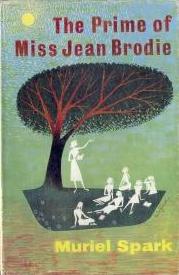
The Prime of Miss Jean Brodie
Speaking of unwashed savages, there is Miss Jean Brodie in her prime, presiding over a class full of impressionable young girls. The place is Edinburgh. The time: between the world wars, in the early thirties, when fascism is on the rise. Miss Jean Brodie is a big fan of Mussolini.
Excerpt for The Prime of Miss Jean Brodie
Miss Brodie stood bronzed before her class and said, "I have spent most of my summer holidays in Italy once more, and a week in London, and I have brought back a great many pictures which we can pin on the wall. Here is Cimabue. Here is a larger formation of Mussolini's fascisti, it is a better view of them than last year's picture. They are doing splendid things, as I shall tell you later. I went with my firends for an audience with the Pope. My friends kissed his ring, but I thought it proper only to bend over it. I wore a long black gown with a lace mantilla and looked magnificent. In London, my firends who are well-to-do -- their small girl has two nurses, or nannies as they say in England -- took me to visit A.A. Milne. In the hall was hung a reproduction of Boticelli's Primavera which means The Birth of Spring. I wore my silk dress with the large poppies which is just right for my colouring. Mussolini is one of the greatest men in world, far more so than Ramsey MacDonald, and his fascisti --"
"Good morning, Miss Brodie. Good morning, sit down, girls," said the headmistress who had entered in a hurry, leaving the door wide open.
Miss Brodie passed behind her with her head up, up, and shut the door with the utmost meaning.
"I have only just looked in," said Miss Mackay, "and I have to be off. Well, girls, this is the first day of the new session. Are we downhearted? No. You girls must work hard this year at every subject and pass your qualifying examination with flying colours. Next year you will be in the Senior school, remember. I hope you've all had a nice summer holiday, you all look nice and brown. I hope in due course of time to read your essays on how you spent them."
When she had gone Miss Brodie looked hard at the door for a long time. A girl, not of her set, called Judith, giggled. Miss Brodie said to Judith, "That will do." She turned to the blackboard and rubbed out with her duster the long divisions sum she always kept on the board in case of intrusions from outside during any arithmetic period when Miss Brodie should happen not to be teachign arithmetic. When she had done this, she turned back to the class and said, "Are we downhearted, no, are we downhearted no. As I was saying, Mussolini has performed feats of magnitude and unemployment is even farther abolished under him than it was last year. I shall be able to tell you a great deal this term. As you know, I don't believe in talking down to children, you are capable of grasping more than is generally appreciated by your elders. Education means a leading out, from e, out and duco, I lead. Qualifying examination or no qualifying examination, you will have the benefit of my experiences in Italy. In Rome I saw the Forum and I saw the Coliseum where the gladiators died and the slaves were thrown to the lions. A vulgar American remarked to me, 'It looks like a mighty fine quarry.' They talk nasally. Mary, what does to talk nasally mean?"
Mary did not know.
'Stupid as ever," said Miss Brodie. "Eunice?"
"Through your nose," said Eunice.
"Answer in complete sentences, please," said Miss Brodie. "This year I think you should all start answering in complete sentences. I must remember this rule. Your correct answer is `To talk nasally is to talk through one's nose.' The American said, `It looks like a mighty fine quarry.' Ah! It was there the gladiators fought. 'Hail Caesar!' they cried. 'These about to die salute thee!'"
Miss Brodie stood in her brown dress like a gladiator with raised arm and eyes flashing like a sword. "Hail Caesar!" she cried again, turning radiantly to the window light, as if Caesar sat there. "Who opened the window?" said Miss Brodie dropping her arm.
Nobody answered.
Muriel Spark is not on my list of favorite authors. Because I liked The Prime of Miss Jean Brodie so much, I did try reading a few of her other books. I've come to conclude that this book is a fluke, and that Muriel Spark may have produced this classic work of great fiction quite by accident.
Muriel Spark is an anti-romantic, and her writing always tends to discredit her protagonists. Somehow, in the case of Jean Brodie, even though we are not oblivious to the comical aspects of the character, we can still identify with her in her romantic pretensions and her passion for life. Here is a teacher who really cares about ideas and can inspire her students to act on them, sometimes with tragic consequences.
Even when a work pokes fun at the romantic ideal, it's romanticism that sustains it. At least, that's how it works for me. I have to feel that a character's life is meaningful if I'm going to take the trouble to read a book more than once.
Atlas Shrugged
Atlas Shrugged is a story that takes place in a society that is collapsing. Businesses are failing, one by one, and the government steps in to bolster the failing companies at the expense of those that are showing a profit. A group of people who feel they have been exploited decide to quit and re-group and form a close-knit community away from civilization. They become self-reliant, growing their own food and providing everything they need and thereby avoid the long hand of the government.
But that's not really what the story is about. That's just the plot. The real story is about learning to recognize the moral rules that govern the universe, both in and out of civilization. It's about how to honor ourselves and in so doing also experience genuine respect for others.
Excerpt from Atlas Shrugged
He acknowledged to himself, for the first time, all the half-grasped , half-rejected moments when he had thought of Francisco d'Anconia and thrust the thought aside before it became the knowledge of how much he wanted to see him again. In moments of sudden exhaustion -- at his desk, with the fires of the furnaces going down in the twilight -- in the darkness of the lonely walk through the empty countryside to his house -- in the silence of the sleepless nights -- he had found himself thinking of the only man who had once seemed to be his spokesman. He had pushed the memory aside, telling himself: But that one is worse than all the others! ---while feeling certain that this was not true, yet being unable to name the reason for his certainty. He had caught himself glancing through the newspapers to see whether Francisco d'Anconia had returned to New York -- and he had thrown the newspapers aside, asking himself angrily: What if he did return? -- would you go chasing him through the night clubs and cocktail parties? -- what is it that you want from him?
This is what he wanted -- he thought, when he caught himself smiling at the sight of Francisco in the crowd -- this strange feeling of expectation that held curiosity, amusement and hope.
Francisco did not seem to have noticed him. Rearden waited, fighting a desire to aproach; not after the kind of conversation that we had, he thought -- what for? --what would I say to him? And then, with that same smiling, light-hearted feeling, the feeling of being certain that it was right, he found himself walking across the ballroom, toward the group that surrounded Francisco d'Anconia.
He wondered, looking at them, why these people were drawn to Francisco, why they chose to hold him imprisoned in a clinging circle, when their resentment of him was obvious under their smiles. Their faces had the hint of a look peculiar, not to fear, but to cowardice: a look of guilty anger. Francisco stood cornered against the side edge of a marble stairway, half leaning, half sitting on the steps; the informality of his posture, combined with the strict formality of his clothes, gave him an air of superlative elegance. His was the only face that had the carefree look and brilliant smile proper to the enjoyment of a party; but his eyes seemed intentionally expressionless, holding no trace of gaiety, showing -- like a warning signal -- nothing but the activity of a heightened perceptiveness.
Standing on the edge of the group, Rearden heard a woman, who had large diamond earrrings and a flabby, nervous face, ask tensely: "Senor d'Anconia, what do you think is going to happen to the world?"
"Just exactly what it deserves."
"Oh, how cruel!"
"Don't you believe in the operation of the moral law, madame?" Francisco asked gravely. "I do."
Rearden heard Bertram Scudder, outside the group, say to a girl who made some sound of indignation, "Don't let him disturb you. You know, money is the root of all evil, and he's the typical product of money."
Rearden did not think that Francisco could have heard it, but he saw Francisco turning to them with a gravely courteous smile.
"So you think that money is the root of all evil?" said Francisco d'Anconia. "Have you ever asked what is the root of money? Money is a tool of exchange, which can't exist there are goods produced and men able to produce them. Money is the material shape of the principle that men who wish to deal with one another must deal by trade and give value for value. Money is not the tool of the moochers, who claim your product by tears or of the looters, who take it from you by force. Money is made possible only by the men who produce. Is this what you consider evil?"
A Tree Grows in Brooklyn
In the past, literature was always about the noble and the great. Recently, more and more it has centered on "ordinary" people. Many would class A Tree Grows in Brooklyn into this category. Francie Nolan is a child growing up in a poor family in Brooklyn in the early years of the twentieth century. Her father is a singing waiter, more often drunk and unemployed than not. Her mother supports the family by scrubbing floors. But Francie is not ordinary.
This book has shaped my understanding of what it means to be truly courageous and self-reliant in the face of dismal poverty. It has also shaped my ideas about patriotism and the American melting pot.
Excerpt from A Tree Grows in Brooklyn
Indeed, Francie was the only one in her classroom whose parents were American-born. At the beginning of the term, Teacher called the roll and asked each child her lineage. The answers were typical.
"I'm Polish American. My father was born in Warsaw."
"Irish-American. Me fayther and mither were born in County Cork."
When Nolan was called, Francie answered proudly: "I'm an American."
"I know you're American," said the easily exasperated teacher. "But what's your nationality?"
"American!" insisted Francie even more proudly.
"Will you tell me what your parents are or do I have to send you to the principal?"
"My parents are American. They were born in Brooklyn."
All the children turned around to look at a little girl whose parents were not from the old country. And when the teacher said, "Brooklyn? Hm. I guess that makes you an American all right," Francie was proud and happy. How wonderful was Brooklyn, she thought, when just being born there automatically made you an American!
Watership Down
Watership Down explores some of the same issues as Atlas Shrugged, only with rabbits. Sometimes I think that our biggest problem right now is that we have become too domesticated. We have no natural predators, not even bacteria, and so our bodies have turned against us, and our minds are full of useless information, but none of us know how to produce food or to hunt and gather it, if necessary. We think food and shelter comes from other people, and we're not exactly sure how the other people got them. We are trained to consider our relative position in society as more important than the position of society in the natural order of things. But when a society collapses, individuals discover self reliance and true friendship among peers. Sometimes knowning when to walk away from a sheltered way of life is a matter of life and death. That's what this book is about.
Watership Down reminds me to trust my instincts and to eschew weird forms of art or odd social situations that make me sick to my stomach. If it feels sinister and creepy, then chances are that it is!
Excerpt from Watership Down
"Why do we let them stay in that warren?" cried Silver. "What sorts of rabbits are they? They left Bigwig to die. You all heard Cowslip in the burrow. They're cowards. Let's drive them out-- kill them! Take the warren and live there ourselves!"
"Yes! Yes!" they all answered. "Come on! Back to the warren! Down with Cowslip! Down with Silverweed! Kill them!"
"O embleer Frith!" cried a squealing voice in the long grass.
At this shocking impiety, the tumult died away. They looked about them, wondering who could have spoken. There was silence. Then, from between two great tussocks of hair-grass came Fiver, his eyes blazing with a frantic urgency. He growled and gibbered at them like a witch-hare and those nearest to him fell back in fear. Even Hazel could not have said a word for his life. They realized that he was speaking.
"The warren? You're going to the warren? You fools! That warren's nothing but a death-hole! The whole place is one fowl elil's larder! It's snared -- everywhere, everyday! That explains everything: everything that's happened since we came here."
He sat still and his words seemed to come crawling up the sunlight, over the grass.
'Listen, Dandelion. You're fond of stories, aren't you? I'll tell you one -- yes, one for El-ahrairah to cry at. Once there was a fine warren at the edge of a wood, overlooking the meadows of a farm. It was big, full of rabbits. Then one day, the white blindness came and the rabbits fell sick and died. But a few survived, as they always do. The warren became almost empty. One day the farmer thought, 'I could increase those rabbits: make them part of my farm-- their meat, their skins. Why should I bother to keep rabbits in hutches? They'll do very well where they are." He began to shoot al elil-- lendri, homba, stoat, owl. He put out food for rabbits, but not too near the warren. For his purpose, they had to become accustomed to going about in the fields and the wood. And then he snared them-- not too many: as many as he wanted and not as many as would frighten them all away or destroy the warren. They grew big and strong and healthy, for he saw that they had all the best, particularly in winter, and nothing to fear-- except the running knot in the hedge-gap and the wood-path. So they lived as he wanted them to live and all the time there were a few who disappeared. The rabbits became strange in many ways, different from other rabbits. They knew well enough what was happening. But even to themselves they pretended that all was well, for the food was good, they had nothing to fear but one fear; and that struck here and there, never enough to drive them away. They forgot the ways of wild rabbits. They forgot El-ahrairah, for what use had they for tricks and cunning, living in an enemy's warren and paying his price? They found out other marvellous arts to take the place of tricks and old stories. They danced in ceremonious greeting. They sang songs like the birds and made shapes on the walls; and though these could help them not at all, yet they passed the time and enabled them to tell themselves that they were splendid fellows, the very flower of Rabbitry, more clever than magpies. They had no Chief Rabbit -- no, how could they? -- for a Chief Rabbit must be El-ahrairah to his warren and keep them from death: and here there is no death but one, and what Chief Rabbit could have an answer to that? Instead, Frith sent them wonderful singers, beautiful and sick like oak-apples, like robins' pincushions on the wild rose. And since they could not bear the truth, these singers, who might in some place have been wise, were sqeezed under the terrible weight of the warren's secret until they gulped out fine folly -- about dignity and acquiescence, and anything else that could make believe that the rabbit loved the shining wire. But one strict rule they had; oh, yes, the strictest. no one must ever ask where another rabbit was and anyone who asked: "Where?" except in a song or a poem -- must be silenced. To say `Where?' was bad enough, but to speak openly of the wires -- that was intolerable. For that they would scratch and kill."
Conclusion
That was my list of top ten books in the English language. I didn't want to build my descriptions of the books based on a synopsis of the plot, because that can be so misleading. Every good book has a plot, but the plot in and of itself is not what makes it good. I wanted you to read the excerpts, so you would feel what it's like to be inside the book, in the special space between reader and writer. I did this not just because each of these writers has a unique personal writing style --- even though that's true, that isn't my point here, either. These books are meaningful to me in a much deeper sense. Skillful writing is not what does it for me. Intricate plotting isn't enough, either. There's something else that has to happen before I can fall in love with a book.
That's right, fall in love! I am not just an appreciative reader of these books. I am a fan. What does that mean? It means that at one point or another, I was totally obsessed by each of these books. I didn't just read them and re-read them. I couldn't stop talking about them. Everything that happened to me reminded me of something in one of these books. I would day dream about the characters. I would invent alternate scenarios that weren't in the book. I would write epic poems about them. Example: Elnavis .
Well, I actually only wrote an epic poem about one of them. But there are other ways to be a fan. The portrait of Hester Prynne, which I cut out from a magazine, used to hang in my law office. None of my clients knew who it was supposed to be or why it was there. It now hangs in my living room. The feelings that Wuthering Heights stirred in me were always the yardstick against which I measured to see if something was true love. Atlas Shrugged taught me that value cannot be faked, but The Fountainhead taught me never to give in to the market's evaluation of my work. If the market and I don't agree, I walk away. I don't stand and haggle about my true worth.
Like Franny Glass I've had those moments when looking inward too deep and too long created more problems that it solved. I don't have to look down on other people just because their road to virtue is different.
Whenever I think about juggling motherhood and career, I remember Podkayne of Mars.
When I began teaching, Jean Brodie was my model -- not in the particulars, but in the passion I brought to the job. When I think of the kind of teacher I want my daughter to have, I want someone like Jean Brodie. I don't want a teacher to teach my daughter what to think -- I want her to teach her how to think. In that way, the pupil has the opportunity to surpass the teacher.
Whenever I hear about the plight of the poor, I think about Francie Nolan and how brave and strong she was. I know she didn't want or need a handout, and that the self-reliance she learned in her childhood is the biggest gift her parents could give her.
And Watership Down makes me smile when someone tells me that I am not sophisticated enough to understand modern art or that true dignity is found in accepting a hopeless situation. Like Hazel and Fiver, I'd rather find a way out.
Do you do that with your favorite books, too? Do you obsess over them?
I don't think everybody does. I think there are two kinds of readers, those who read books to pass the time of day or to be able to engage in small talk about them with other people, and those for whom reading certain books is a life-altering event, and the books remain an active presence, long after they've been read.
If it's like that for you, then maybe these books are worth looking into.
(c) 2009 Aya Katz











